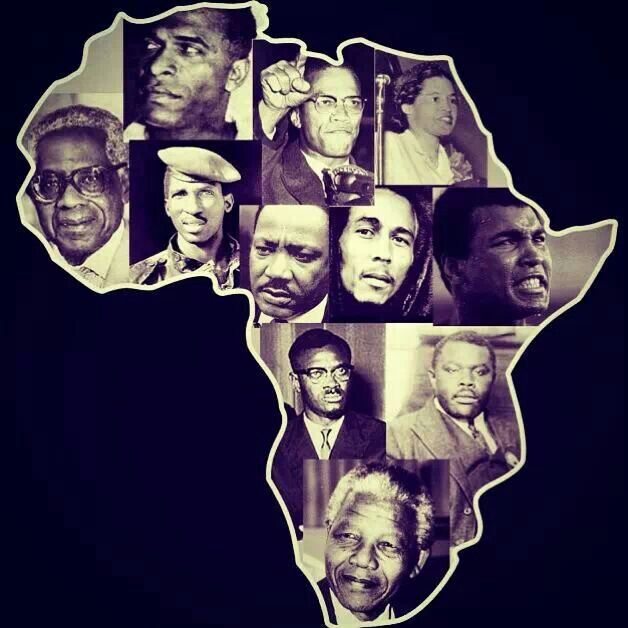How Hard Economies Build Stronger People and Communities

In the face of challenging economic climates, while the immediate impact can be severe, a profound and often overlooked phenomenon occurs: people and communities develop extraordinary resilience, adaptability, and resourcefulness.
This isn't a story of despair. It's about how difficult economic times, rather than simply breaking individuals, often serve as a crucible, forcing innovation, fostering stronger community bonds, and accelerating personal growth.
The "hard economy" inadvertently cultivates stronger financial literacy, an entrepreneurial spirit, and a renewed appreciation for essential values, ultimately leaving individuals and societies more robust and capable than before.
Innovation, Entrepreneurship, and Self-Reliance
Periods of economic hardship act as a powerful catalyst for innovation. With traditional job markets shrinking, individuals are forced to rethink their skills and financial strategies, leading to new forms of entrepreneurship and self-reliance.
SOURCE: Google
When the familiar path to a stable career disappears, people are more likely to take risks and start their own ventures. The 2008 financial crisis, for example, saw a surge in the number of startups, with companies like Uber and Airbnb emerging from the ashes of the recession.
This phenomenon, often called "recession-born entrepreneurship," is a direct result of necessity being the mother of invention.
This pressure also forces individuals to upskill or reskill, learning new trades or digital competencies to remain competitive.
Rather than relying on a single employer, they build diverse income streams through freelancing, consulting, or small-scale business ventures.
This diversification of skills and income not only provides a buffer against future shocks but also cultivates a mindset of self-reliance and creative problem-solving.
It pushes people to become more agile in their careers and more in tune with the needs of the market.
The Power of Collective Action and Community Bonds
In a tough economy, the role of community support and collective action becomes paramount. When institutional safety nets are strained, individuals naturally turn to their neighbors, local businesses, and community groups for help.
SOURCE: Google
This collective action mitigates the effects of hardship by fostering informal support systems. Communities organize food banks, swap services, share resources, and create local support networks that provide both material and emotional relief.
These bonds strengthen in adversity, as people recognize their shared fate and the importance of looking out for one another.
This renewed focus on local support builds what sociologists call "social capital." It is the network of relationships that people have, and it can be a more reliable form of wealth than money during a crisis.
SOURCE: Medium
For example, local community gardens and time banks, where individuals trade skills and services instead of money, become more popular. This reinforces a sense of shared purpose and solidarity, making the community as a whole more resilient and better equipped to handle future challenges.
Developing Financial Literacy and Discipline
When resources are scarce, the need to manage them effectively becomes an immediate priority. Economic pressure leads people to develop greater financial literacy and budgeting discipline.
SOURCE: Google
Families are forced to track every penny, scrutinize their spending habits, and differentiate between wants and needs. They learn to save, invest wisely, and avoid unnecessary debt. This kind of hands-on learning, driven by necessity, is often more effective than any financial education course.
This shift in long-term money habits can be seen in the wake of major recessions. Following the 2008 financial crisis, for instance, many young adults adopted more cautious financial behaviors, including higher savings rates and a reluctance to take on significant debt.
This increased financial prudence can create a more stable financial foundation for individuals and, when scaled up, for the entire economy. It transforms a society from one of consumerism to one of thrift and strategic financial planning.
A Re-evaluation of Priorities and Values
Economic pressure often leads to a re-evaluation of priorities and consumption patterns, fostering a more sustainable and values-driven lifestyle. When money is tight, people realize that happiness and fulfillment are not solely tied to material possessions.
They begin to prioritize experiences, relationships, and essential needs over luxury goods and excessive consumerism. This shift in mindset can lead to a more profound sense of well-being, as people reconnect with what truly matters in life.
This re-evaluation also fosters a more sustainable approach to consumption. People are more likely to repair items instead of replacing them, buy second-hand goods, and find creative uses for things they already own.
This mindset of resourcefulness reduces waste and lowers a society's overall environmental footprint. It moves a culture away from throwaway consumerism towards one of durability and shared resources.
Psychological Fortitude and Resilience
Economic stress is undoubtedly difficult, but the psychological and emotional mechanisms that allow individuals to cope often lead to increased mental fortitude and resilience.
The process of adapting to a new normal, of finding new ways to earn a living and support a family, builds a powerful sense of grit and determination.
Facing adversity and overcoming it strengthens a person's belief in their own capabilities.
This experience can also lead to a greater sense of gratitude and a renewed appreciation for basic comforts.
The shared struggle can reduce feelings of isolation and build empathy for others going through similar challenges.
The resilience developed in the face of economic hardship isn't just about financial survival; it's about developing emotional intelligence and a more grounded perspective on life's challenges.
It teaches people that they are capable of enduring hardship and emerging stronger on the other side.
Leveraging Lessons for Broader Societal Benefit
The lessons learned and innovations sparked during difficult economic times can and should be sustained and leveraged for broader societal benefit even when conditions improve.
The entrepreneurial spirit born from necessity can be nurtured through small business grants and mentorship programs.
The financial literacy gained can be reinforced through public education initiatives. Community bonds, once strengthened, can be maintained through continued investment in local organizations and social infrastructure.
By understanding that hardship can be a powerful catalyst for positive change, we can build a society that is not only prepared for the next downturn but one that also embraces the values of resilience, resourcefulness, and community even in times of prosperity.
The "hard economy" provides a tough lesson, but it’s one that can lead to a more robust, adaptable, and ultimately more humane society.
Recommended Articles
The Global Economy at a Crossroads: Navigating Uncertainty and Opportunity

Description: From geopolitical shifts to technological disruption, the global economy faces unprecedented challenges and...
The Inequality Machine: How Global Systems Perpetuate Wealth Divides

This article dissects the systemic mechanisms—from tax policies to financialization—that are making the rich richer and ...
Unpacking the New Forms of Wealth in the Digital Age
Forget traditional assets. This article explores how digital assets, data, intellectual property, and even attention are...
Asia's Economic Juggernaut: Navigating Growth, Challenges, and a Shifting Global Role

Dive into the diverse forces propelling Asia's economic growth, from its demographic powerhouses and technological leaps...
Europe's Economic Balancing Act: Navigating Growth, Weaknesses, and Global Shifts

Explore the forces driving and hindering Europe's economic growth, from the strength of its single market and key indust...
You may also like...
World’s Strongest Currencies Compared to the U.S. Dollar

The Dollar may be powerful, but it’s far from the strongest. See the top currencies in the world that outshine it, and w...
World’s Strongest Currencies Compared to the U.S. Dollar

The Dollar may be powerful, but it’s far from the strongest. See the top currencies in the world that outshine it, and w...
Why Do Africans Become More African After Leaving Africa?

Why do Africans abroad suddenly embrace their roots with pride? From Afrobeats in London to Yoruba weddings in New York,...
Boxing Icon's Son in Legal Turmoil: Julio Cesar Chavez Jr. Faces Cartel Allegations & Deportation Drama!

Mexican boxer Julio César Chávez Jr. has been deported from the U.S. to Mexico, where he was immediately jailed for alle...
Super Falcons Make History: Nigeria Crowned WAFCON Champions for 10th Time in Thrilling Win!
)
Nigeria's Super Falcons made history by clinching their 10th Women's Africa Cup of Nations title with a spectacular 3-2 ...
Paolo Sorrentino's 'La Grazia' Dazzles Venice, Earns Raves

Paolo Sorrentino's latest film, 'La Grazia,' captivated the Venice Film Festival, earning a four-minute standing ovation...
KPop Demon Hunters Ignites Oscar Buzz, Captivates Audiences

The animated film "KPop Demon Hunters" has emerged as a record-breaking global phenomenon, topping Netflix viewership ch...
Naira Marley Breaks Silence: Explosive Defense in Mohbad Case Rocks Nigeria!

Naira Marley has released a documentary sharing his side of the story regarding the tragic death of his former signee, M...